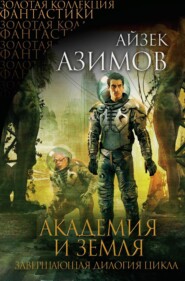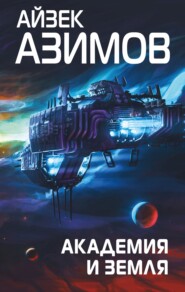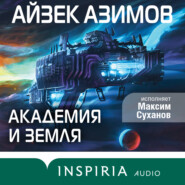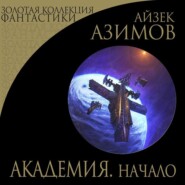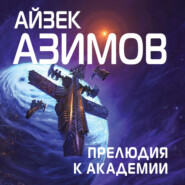По всем вопросам обращайтесь на: info@litportal.ru
(©) 2003-2025.
✖
Foundation and Empire
Настройки чтения
Размер шрифта
Высота строк
Поля
Chapter 22: Death on Neotrantor
Chapter 23: The Ruins of Trantor
Chapter 24: Convert
Chapter 25: Death of A Psychologist
Chapter 26: End of the Search
Footnote
About the Author
By the Same Author
About the Publisher
Prologue (#u2660011c-7b10-591e-a004-5ce5892cceee)
The Galactic Empire was falling.
It was a colossal Empire, stretching across millions of worlds from arm-end to arm-end of the mighty double-spiral that was the Milky Way. Its fall was colossal, too – and a long one, for it had a long way to go.
It had been falling for centuries before one man became really aware of that fall. That man was Hari Seldon, the man who represented the one spark of creative effort left among the gathering decay. He developed and brought to its highest pitch the science of psycho-history.
Psycho-history dealt not with man, but with man-masses. It was the science of mobs; mobs in their billions. It could forecast reactions to stimuli with something of the accuracy that a lesser science could bring to the forecast of are bound of a billiard ball. The reaction of one man could be forecast by no known mathematics; the reaction of a billion is something else again.
Hari Seldon plotted the social and economic trends of the time, sighted along the curves and foresaw the continuing and accelerating fall of civilization and the gap of thirty thousand years that must elapse before a struggling new Empire could emerge from the ruins.
It was too late to stop that fall, but not too late to close the gap of barbarism. Seldon established two Foundations at ‘opposite ends of the Galaxy’ and their location was so designed that in one short millennium events would knit and mesh so as to force out of them a stronger, more permanent, more quickly appearing Second Empire.
Foundation (Gnome Press, 1951) has told the story of one of those Foundations during the first two centuries of life.
It began as a settlement of physical scientists on Terminus, a planet at the extreme end of one of the spiral arms of the Galaxy. Separated from the turmoil of the Empire, they worked as compilers of a universal compendium of knowledge, the Encyclopedia Galactica, unaware of the deeper role planned for them by the already-dead Seldon.
As the Empire rotted, the outer regions fell into the hands of independent ‘kings’. The Foundation was threatened by them. However, by playing one petty ruler against another, under the leadership of their first mayor, Salvor Hardin, they maintained a precarious independence. As sole possessors of atomic power among worlds which were losing their sciences and falling back on coal and oil, they even established an ascendancy. The Foundation became the ‘religious’ centre of the neighbouring kingdoms.
Slowly, the Foundation, developed a trading economy as the Encyclopedia receded into the background. Their Traders, dealing in atomic gadgets which not even the Empire in its heyday could have duplicated for compactness, penetrated hundreds of light-years through the Periphery.
Under Hober Mallow, the first of the Foundation’s Merchant Princes, they developed the techniques of economic warfare to the point of defeating the Republic of Korell, even though that world was receiving support from one of the outer provinces of what was left of the Empire.
At the end of two hundred years, the Foundation was the most powerful state in the Galaxy, except for the remains of the Empire, which, concentrated in the central third of the Milky Way, still controlled three quarters of the population and wealth of the Universe.
It seemed inevitable that the next danger the Foundation would have to face was the final lash of the dying Empire.
The way must be cleared for the battle of Foundation and Empire.
Part I (#u2660011c-7b10-591e-a004-5ce5892cceee)
1 (#u2660011c-7b10-591e-a004-5ce5892cceee)
Search for Magicians (#u2660011c-7b10-591e-a004-5ce5892cceee)
BEL RIOSE … In his relatively short career, Riose earned the title of ‘The Last of the Imperials’ and earned it well. A study of his campaigns reveals him to be the equal of Peurifoy in strategic ability and his superior perhaps in his ability to handle men. That he was born in the days of the decline of Empire made it all but impossible for him to equal Peurifoy’s record as a conqueror. Yet he had his chance when, the first of the Empire’s generals to do so, he faced the Foundation squarely …
ENCYLOPEDIA GALACTICA
Bel Riose travelled without escort, which is not what court etiquette prescribes for the head of a fleet stationed in a yet-sullen stellar system on the Marches of the Galactic Empire.
But Bel Riose was young and energetic – energetic enough to be sent as near the end of the universe as possible by an unemotional and calculating court – and curious besides. Strange and improbable tales fancifully-repeated by hundreds and murkily-known to thousands intrigued the last faculty; the possibility of a military venture engaged the other two. The combination was overpowering.
He was out of the dowdy ground-car he had appropriated and at the door of the fading mansion that was his destination. He waited. The photonic eye that spanned the doorway was alive, but when the door opened it was by hand.
Bel Riose smiled at the old man. ‘I am Riose—’
‘I recognize you.’ The old man remained stiffly and unsurprised in his place. ‘Your business?’
Riose withdrew a step in a gesture of submission. ‘One of peace. If you are Ducem Barr, I ask the favour of conversation.’
Ducem Barr stepped aside and in the interior of the house the walls glowed into life. The general entered into daylight.
He touched the wall of the study, then stared at his fingertips. ‘You have this on Siwenna?’
Barr smiled thinly. ‘Not elsewhere, I believe. I keep this in repair myself as well as I can. I must apologize for your wait at the door. The automatic device registers the presence of a visitor but will no longer open the door.’
‘Your repairs fall short?’ The general’s voice was faintly mocking.
‘Parts are no longer available. If you will sit, sir. You drink tea?’
‘On Siwenna? My good sir, it is socially impossible not to drink it here.’
The old patrician retreated noiselessly with a slow bow that was part of the ceremonious legacy left by a ci-devant aristocracy of the last century’s better days.
Riose looked after his host’s departing figure, and his studied urbanity grew a bit uncertain at the edges. His education had been purely military; his experience likewise. He had, as the cliché has it, faced death many times; but always death of a very familiar and tangible nature. Consequently, there is no inconsistency in the fact that the idolized lion of the Twentieth Fleet felt chilled in the suddenly musty atmosphere of an ancient room,
The general recognized the small black ivroid boxes that lined the shelves to be books. Their titles were unfamiliar. He guessed that the large structure at one end of the room was the receiver that transmuted the books into sight-and-sound on demand. He had never seen one in operation; but he had heard of them.
Once he had been told that long before, during the golden ages when the Empire had been co-extensive with the entire Galaxy, nine houses out of every ten had such receivers – and such rows of books.
But there were borders to watch now; books were for old men. And half the stories told about the old days were mythical anyway. More than half.
The tea arrived, and Riose seated himself. Ducem Barr lifted his cup. ‘To your honour.’
‘Thank you. To yours.’
Ducem Barr said deliberately, ‘You are said to be young. Thirty-five?’
‘Near enough. Thirty-four.’






